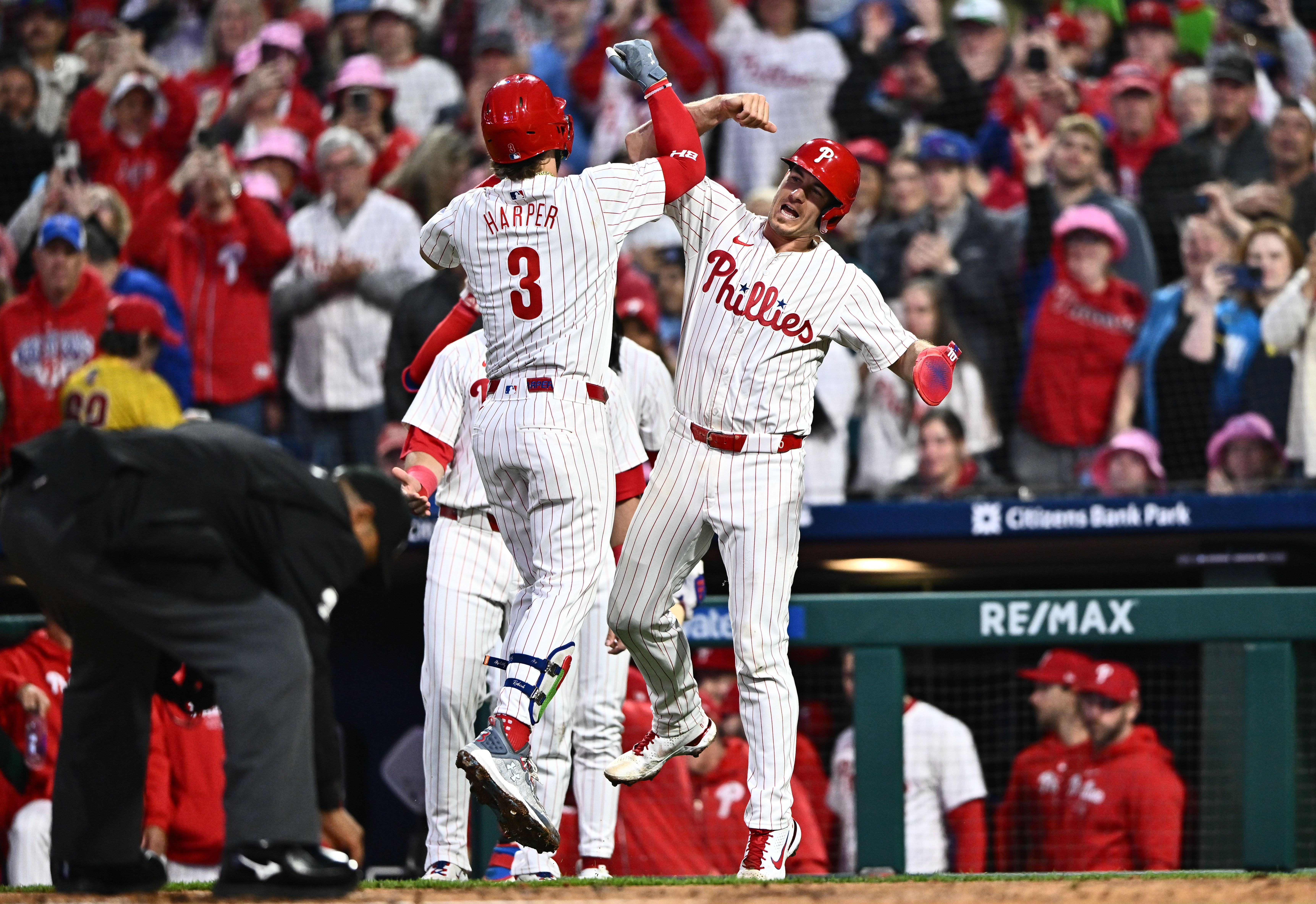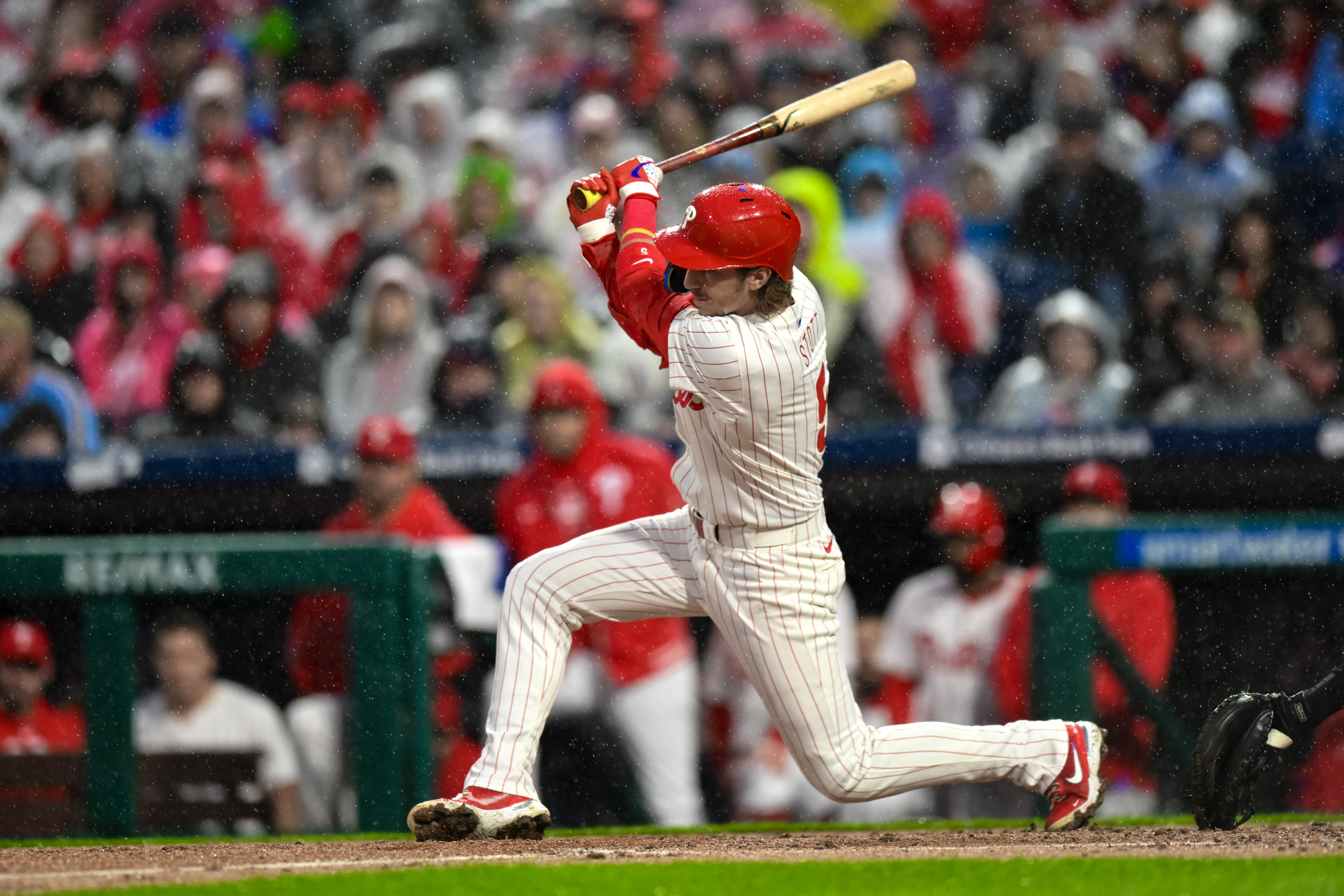CLEARWATER, Fla. - The Phillies have shown a lot of confidence in their starting rotation over the last six months, standing pat after missing out on Patrick Corbin and J.A. Happ and looking ready to roll into the regular season with the same five guys who accounted for 150 of their 162 starts in 2018.
Dallas Keuchel is still out there but is unlikely to be a Phillie unless his market totally dries up and he is willing to accept a short-term deal at a surprisingly low number.
You'll recall that last season, the Phillies' starting rotation was their strength in the first third of the season. From opening day through the end of May, Phillies starting pitchers had a combined 3.31 ERA, fifth-best in the majors. They were in the top-8 in baseball in strikeout rate, walk rate, home run rate and WHIP.
Things fell apart late in the season. Performances were uneven from Vince Velasquez, Zach Eflin, Nick Pivetta and Jake Arrieta.
All of the 2019 projections and predictions are meaningless. Folks can be optimistic about the Phillies' starting rotation or question whether they have enough pitching - it's all just chatter until we see where this group stands after six weeks or so. Even then, it will be tough to form a concrete opinion given the ebbs and flows of 2018. When will the sample size be large enough to believe Velasquez, Eflin or Pivetta have truly turned a corner?
Monday afternoon against the Rays, Velasquez had the kind of start he's had frequently as a Phillie - swings-and-misses, early wildness, a high pitch count, some untimely hard contact. He ended up throwing 43 pitches in two innings, striking out four and allowing four well-struck balls that led to five runs.
Velasquez knows that the perception, locally and nationally, is that the Phillies' offense should be potent and the defense improved, but the starting pitching is a question mark.
Philadelphia Phillies
Complete coverage of the Fightin' Phils and their MLB rivals from NBC Sports Philadelphia.
"I don't think we're focusing on what the word is out there," he said. "I have a job to do and that's to continue pitching and being a strong pitcher that I'm capable of being. I know what we have as far as [guys returning]. We were dominant for the first half. ...
"I don't really foresee any changes in the rotation as of now. I just know that we're full-on confident with what we have."
Velasquez has made 69 starts as a Phillie. Among them, 24 could be classified as very good starts. In 23 other starts, he failed to complete five innings. It would be redundant to say there hasn't been enough consistency. The organization knows it, the fans know it, he knows it.
One thing you can never question is Velasquez's dedication to his craft and willingness to assess himself honestly. He never hides after a bad outing. He never makes excuses. He's accountable. That's not always the case with young pitchers, especially in a pressure-cooker environment like Philadelphia.
This season, he will face pressure unlike any he has experienced in his previous three seasons as a Phillie. That's just a byproduct of playing for a team with high expectations.
"We try to put it all together with Vinny," manager Gabe Kapler said. "We want him to establish the four-seam fastball, we want him to establish it up in the zone, we want him to get ahead. You saw as he eased into the game, the 95s, the 96s flash. We want to see that from jump."
When you miss a lot of bats and lose command of the strike zone, especially early in counts, you're going to throw a lot of pitches. Velasquez, as a Phillie, has averaged 17.0 pitches per inning. The average in both leagues over that span is 16.6. When you put it like that, it doesn't seem so bad, but Velasquez did rank in the bottom 10 of the NL in pitches per inning in all three seasons.
How does he find outs earlier in counts? How does he take his, at times, overpowering arsenal deeper into games? There's not one answer, but ...
"Him showing ultimate confidence in his stuff," Kapler said. "And that means on a 2-0 count, I'm throwing you a fastball even if the last one got hit for a double. Later, when I'm in an 0-2 count, I don't need to be perfect and work a 3-2 count to punch you out. I can throw you a couple fastballs and while you're defensive and in that 0-2 count, you might swing and miss a little bit earlier."
Click here to download the MyTeams App by NBC Sports! Receive comprehensive coverage of your teams and stream the Flyers, Sixers and Phillies games easily on your device.



